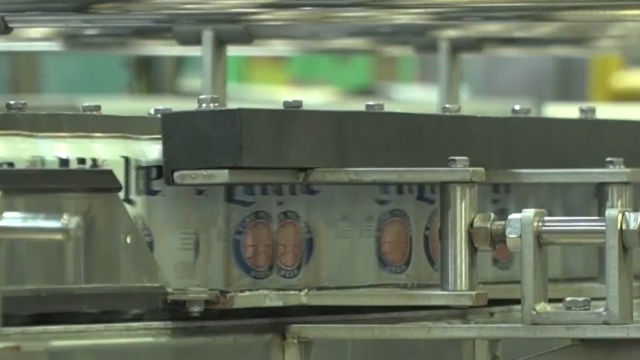The tariff fallout continues following the decision last week by the Trump administration that it would eliminate the metals tariff exemption granted to Canada, Mexico and the EU. Beer makers are among the U.S. manufacturers who are feeling the effects of the decision.
CGTN’S Dan Williams explains.
The decision to eliminate the exemption means steel imports will be subject to a 25 percent tariff, and aluminum, 10 percent. The European Union, Canada and Mexico were quick to announce retaliatory tariffs.
But many U.S. manufacturers are also against the tariff decision, and that includes MillerCoors, the second largest U.S. brewing company.
They warn the move would lead to higher prices and job losses.
“When you put a tariff on a raw material, you disadvantage tens of thousands of manufacturers who would use aluminum as an input. Because anyone who is bringing raw material into this country would not have that same disadvantage. Also, anyone who exports to those countries would also be disadvantaged. And that is the real kicker there,” says Tim Weiner, Senior Global Risk Manager at MillerCoors.
Since January 2015, aluminum production in the U.S. has fallen by more than 50 percent. It means, manufacturers will have little choice, but to pay the tariff, at least in the short term, as the demand far outweighs domestic supply.
Dali Yang is a professor of political science at the University of Chicago. He fears the U.S. tariffs on metal imports will hurt a lot of businesses. “Businesses really hate uncertainty. The margins for beer manufacturers and others are fairly compressed. So they need to be very careful with this kind of input price, especially at a time also when the labor market is highly constrained as well.”
U.S. aluminum prices jumped 26 percent in April and remain significantly higher than at the start of the year. It has led some manufacturers to call for a reform of the so-called “Midwest Premium”—a pricing system that is used for aluminum in the U.S. Weiner says the pricing system is outdated and punishes manufacturers. “In the beer industry, I think every penny of artificial inflation with the ‘Midwest premium,’ which is where the tariffs are being felt, it is 40 million dollars just to the beer industry. If you look at the beverage industry in the rest of the United States. You look at autos, construction, you are talking billions of dollars. Is it worth it to save a few hundred jobs? Not saying the jobs are not important, they are important but you have to look at the whole economy.”
In the meantime, brewers and other drink manufacturers hope they won’t be the ones stuck with the hangover once the tariff dust settles.
 CGTN America
CGTN America

